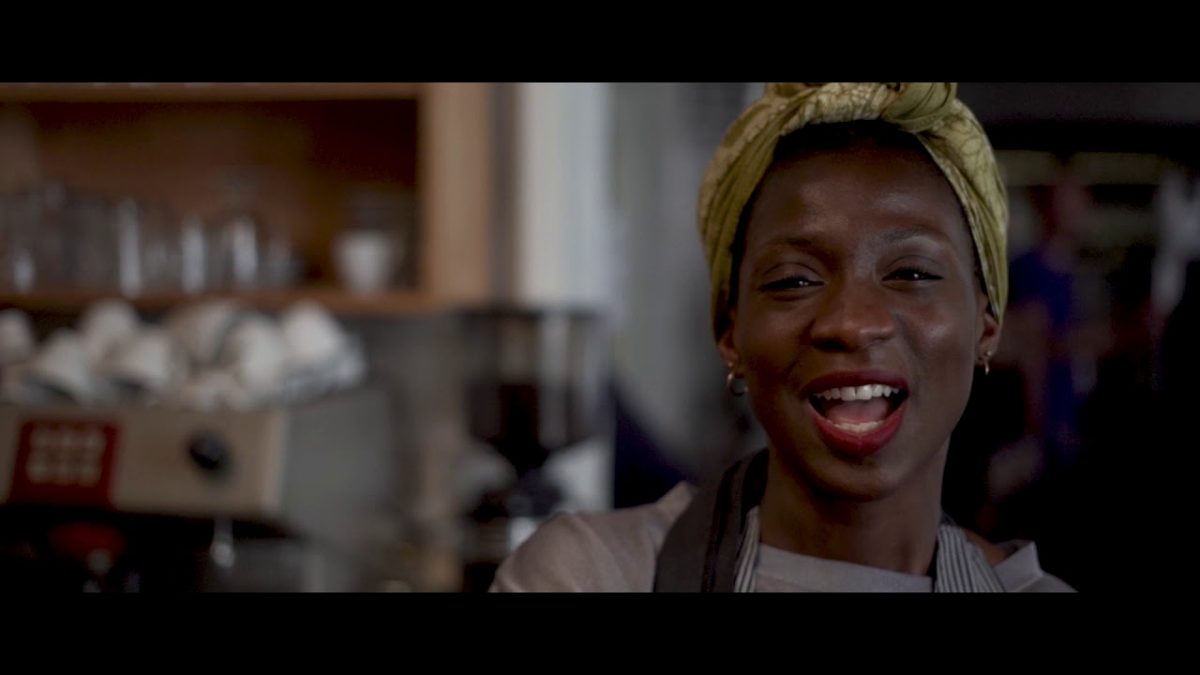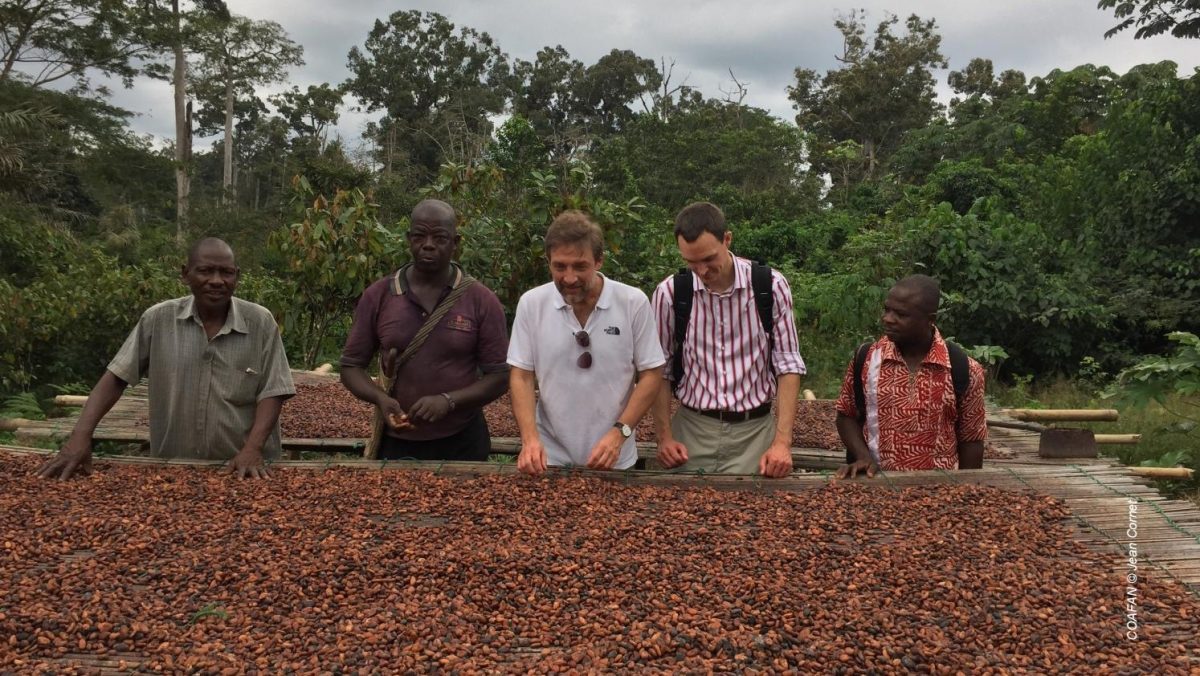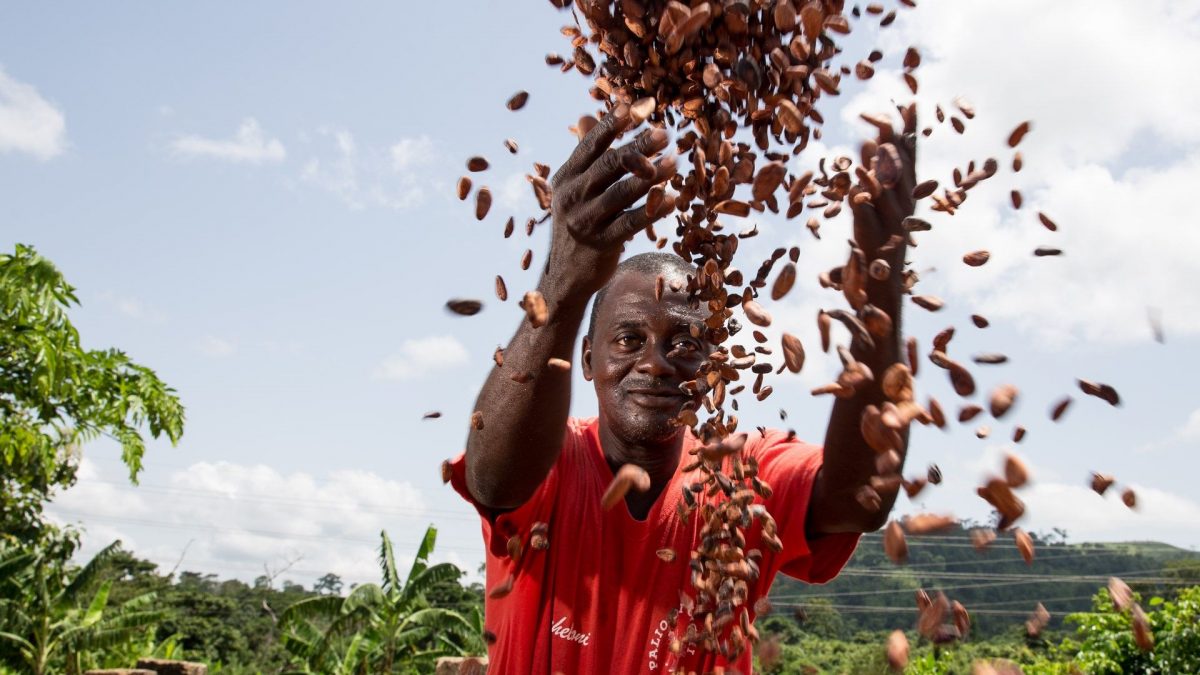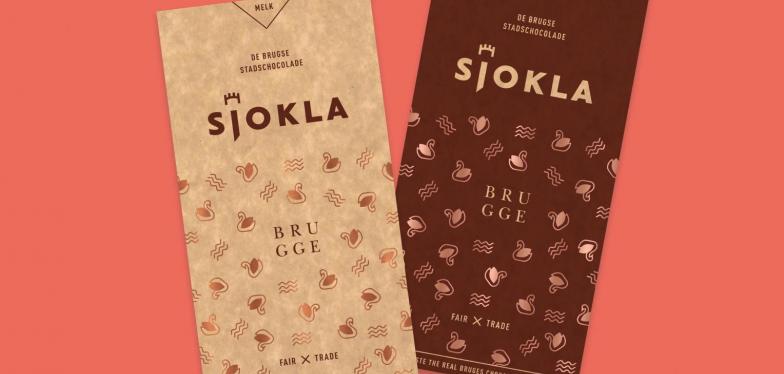Alvaro and Antonio Morales, two professional Belgian-Salvadorian singers well known in El Salvador, have just released a song designed to make consumers aware of the crisis currently affecting coffee producers.


Alvaro and Antonio Morales, two professional Belgian-Salvadorian singers well known in El Salvador, have just released a song designed to make consumers aware of the crisis currently affecting coffee producers.

These cocoa cooperatives aim to sell as much of their members’ cocoa as possible at the best conditions possible. But doing so is far from evident.

The production process that turns the cocoa bean into a chocolate bar requires many intermediary steps and involves multinational corporations. More and more chocolatiers all over the world now want to take the whole process in their own hands.

Three Belgians are about to open a chocolate factory near Virunga, Africa’s largest tropical rainforest reserve. This Unesco World Heritage site is run by a Belgian, Prince Emmanuel de Merode. He is one of three investors, along with the Belgian chocolatier Dominique Persoone and Dimitri Moreels, the owner of cocoa-exporting Copak.

In recent years, many fair and sustainable trade cooperatives and small businesses from partner countries of the
Belgian Development Cooperation received support of the
Trade for Development Centre. Either in the form of
financial support or via coaching in marketing or finance and
business management, or a combination of the two.
The goal is always the same, i.e. improve the market opportunities for small producers. Some of these cooperatives
have developed business relations with businesses operating in Belgium.

This presentation gives an overview on the advantages and shortcomings of the voluntary sustainability standards Fairtrade International, Utz and Rainforest Alliance in the cocoa sector.

On 5 December, the day before local ‘Sinterklaas’ visits children with toys and chocolate figurines, representatives of Belgium’s chocolate industry, retail sector and civil society signed the Beyond Chocolate partnership targeting 100 % sustainable Belgian chocolate by 2025 and a living income for all cocoa producers by 2030. Also Enabel signed the partnership, committing the Trade for Development Centre (TDC) to the initiative.

On Friday 5 October, about thirty people: chocolate makers, Oxfam volunteers, representatives of the Province of Luxembourg and the Fair Trade Municipalities of the region, went to Bruges, the self-proclaimed capital of fair trade and chocolate.

This study investigates whether and how Vietnamese Fairtrade cashew nuts can conquer a solid position in the world market. The study was carried out by Globally Cool on behalf of the TDC.

The Trade for Development Centre (TDC) and Fairtrade Africa partnered with Euromonitor International to better understand the hot beverages market both in B2B (foodservice and institutions) and B2C (retail) channels, and the potential commercial opportunity for Fairtrade certified brands in Kenya and the wider region (Kenya, Uganda, Burundi, Tanzania and Rwanda). The market research particularly focuses on the Fairtrade products as tea and coffee as the main hot beverages consumed by Kenyans but also on the powdered hot drinks such as hot chocolate.